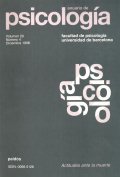La ritualización de la pérdida
Paraules clau:
Corpse, Major life events, Ceremony, Symbolic effectiveness, Bereavement, Grieving process, Mutual support groups.Resum
Anthropology perceives death as both a biological and social process. Each society constructs, in accordance with its own system of values and beliefs, a cultural interpretation of the phenomenon reflected in its rituals. Death is a transition, a process of separation that affects the individual who departs and the group which is abandoned. Ritualistic behaviour facilitates this transition through its ceremonial acts whose main function is to reestablish the social order that has been disturbed. The ceremonies are characterized by a series of acts which manifestly prepare the corpse for its final departure, even though the effectiveness of the process lies in its latent content: to control and ease the anguish to which the corpse and the idea of death give rise. Our society in its efforts to reject the act of dying and death from the collective sphere reduces as much as possible the sequence of acts within the funeral services, detracting thereby from the effectiveness of the rites. Death is disguised and reduced to a mechanical act via rapidly expedited funerals which seek to cast out its shadow. This attitude is socially accepted, but is harmful to the individual as the sense of isolation of those who lose a loved one is increased, thereby hindering the grieving process. Other societies, as well as some groups in our own culture who advocate change, operate different mechanisms which favour the collectivization of the transition, providing the ritual with new symbolic elements and accepting the ultimate katharsis without restricting it solely to the person suffering the bereavement.Descàrregues
Publicades
1998-01-14
Número
Secció
Articles
Llicència
El/la autor/a que publica en esta revista está de acuerdo con los términos siguientes:
El/la autor/a cede en exclusiva todos los derechos de propiedad intelectual al/la editor/a para todo el mundo y toda la duración de los derechos de propiedad intelectual vigentes aplicables.
El/la autor/a puede difundir una copia de sus artículos respetando la política de acceso libre de la revista.


